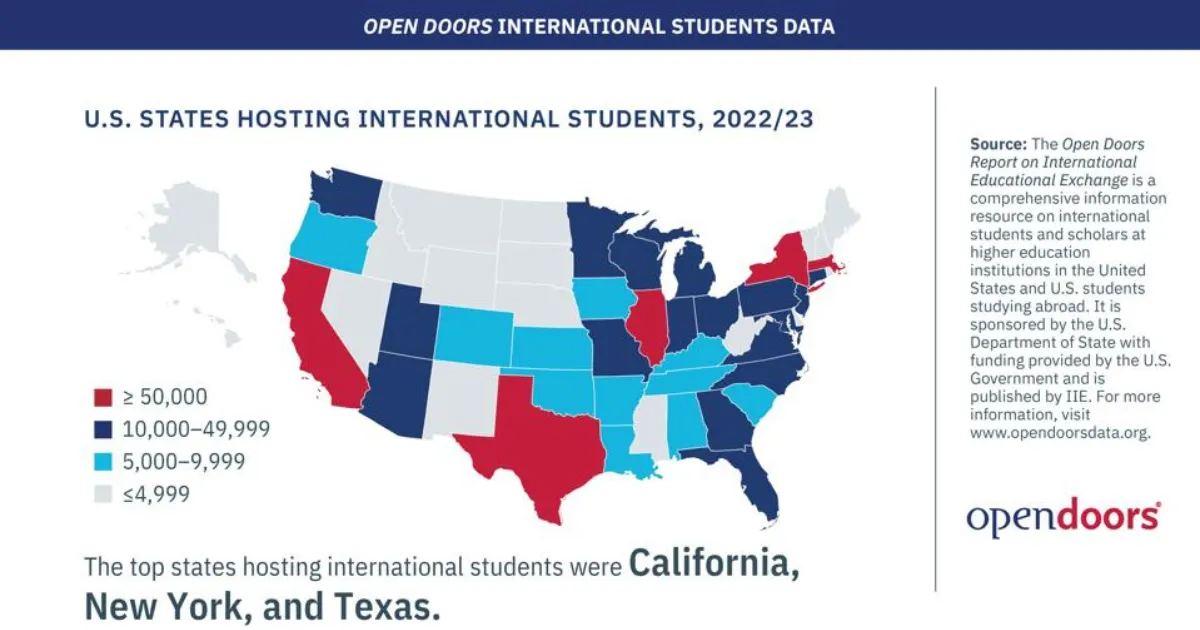FOLLOW THESE 5 HELPFUL STEPS TO FIND THE RIGHT STUDY ABROAD PROGRAM FOR YOU
Choosing where to go and which study abroad program to join can be hard for students with so many options. Some students know exactly what they want, while others feel a bit lost. So, here are tips to help you make decisions.
BRAINSTORM YOUR DREAM STUDY ABROAD PROGRAM
First, figure out what you want. Ask yourself what you really want from this experience. If you want to have a great time and enjoy yourself, your choice might be different than if you’re focused on learning. Trust your feelings because usually, you know what’s best for you. Is there a foreign country or city you’ve always wanted to live in? Do you want to learn or get better at a language? Have you dreamt of studying at a particular university? Are you interested in picking up a new skill like diving or surfing while you’re abroad? It’s good to have an idea of what you want before you start looking into study programs. Otherwise, all the options might be overwhelming.
RESEARCH STUDY ABROAD DESTINATIONS AND PROGRAMS
Next, check if your university has any programs with other schools. But don’t just stick to those options. This exchange opportunity is a rare chance, so don’t go for something just because it’s easy. To make the most of it, do some research and get excited! Ask your friends and classmates what they think, browse the internet, watch videos about interesting countries, or find YouTube stories from people who studied abroad.
Nowadays, there are companies like Asia Exchange https://asiaexchange.org/ or Beyond Abroad https://www.beyondabroad.org/study-destinations/ that provide special study opportunities and programs. These companies make it easier and cheaper than ever to study in the most incredible places around the world. Applying is simple and quick, the programs are designed for all international students, and the universities are well-accredited. CLICK HERE [MUXBAY] TO FIND OUT MORE ABOUT THE STUDY PROGRAMS!
MINIMIZE YOUR SELECTION OF STUDY ABROAD OPTIONS
The third step will prevent so-called ‘overchoice‘. Before starting the final decision-making process, eliminate all brainstormed and researched options that are not viable. Start with obvious reasons, such as compatibility of semester dates, transferability of courses, affordability, unfulfilled qualifications, or even visa matters.
Moreover, let go of the idea of the “perfect” choice and the fear of making the “wrong” choice. Again, when narrowing down your options, go with your gut instinct. Lastly, you should be able to choose from at least a few realistic study programs.
A CONSULTATION SESSION
If you’re feeling a bit confused about your study abroad plans, consider setting up a consultation session. While doing your research can provide helpful information, it often leaves you with lingering questions. That’s why we suggest reaching out to the experts – the people who know the most about the study abroad program you’re interested in. You can have a conversation with the student mobility professionals from the program or university. During this special consultation, you get the chance to ask specific questions and discuss any concerns you might have in a one-on-one talk with an expert. So, don’t hesitate – make the most of these services. They’re there to help you gain clarity and make informed decisions for your study abroad journey. CLICK HERE [MUXBAY] TO FIND OUT MORE ABOUT THE consultation session!
MAKE A PROS AND CONS LIST WITH YOUR FAVOURITE STUDY PROGRAMS
Now, it’s time to make your big decision after going through all the steps. You’ve collected a bunch of important information by now. Your decision should not only be well-informed but also feel right to you. Trusting your gut will help reduce any worries about regret and make you more excited about your exchange experience. We highly recommend making pros and cons lists for important decisions like this.
Start by writing down all the important categories that could affect your choice. This could include things like the courses offered, educational standards, program costs, living standards in the country, cultural aspects, language spoken, or your personal interests. Once you have your list, give each point a value. Don’t stress too much, just let your mind think freely. In the end, you’ll have a clear summary of the reasons for and against your favorite study programs. Finally, make your choice and get ready for the adventure.
We hope this advice makes your decision-making easier.
Discovering Lithuania: Affordable Education and Vibrant Living
Are you intrigued by the idea of studying in Lithuania? It’s a rising star among international students for several reasons. This Baltic gem not only provides a diverse range of English-taught degrees but also ensures a high-quality education. What’s more, the tuition fees and cost of living are surprisingly budget-friendly. Let’s unravel the details that make Lithuania an exciting prospect for students.
Tuition Fees: Unlocking the Cost of Knowledge
Studying in Lithuania won’t break the bank. On average, Bachelor’s degrees range from €2,000 to €5,000 per year, while Master’s degrees typically cost between €4,000 and €9,000. Although prices can vary based on the institution and the chosen field, there’s something for everyone. For instance, a Master’s in medicine or dentistry might be on the higher side, around €14,000 per year.
Sample Tuition Fees at Select Universities:
- Vilnius University: Bachelor’s €3,200, Master’s €5,000 to €14,000
- Vilnius Gediminas Technical University: Bachelor’s €3,500, Master’s around €4,500
- Kaunas University of Technology: Bachelor’s around €3,000, Master’s around €5,000
- Vytautas Magnus University: Bachelor’s €3,500, Master’s €5,000
Application Fees: The First Step in Your Journey
Applying to Lithuanian universities usually comes with a fee, typically around €100. However, exemptions exist. EU/EEA undergraduate students applying for state-funded places may be spared this fee. Once enrolled, a registration fee, varying by institution (e.g., €50 at Kaunas University of Technology), might be on the horizon. Non-EU/EEA students, however, will likely face an application fee, typically paid during the online application process.
Study for Free? A Real Possibility!
Believe it or not, some lucky students can enjoy tuition-free education in Lithuania. EU/EEA nationals, Lithuanian nationals abroad, and those with Lithuanian origins can apply for state-funded study places. EU students can even explore state-supported loans. Unfortunately, non-EU students aren’t eligible for these options, but the good news is there are numerous scholarships and fee waivers available.
Scholarships: Financial Support for Your Dreams
Great news! Scholarships in Lithuania are accessible to both EU and non-EU students. Individual universities, like Kaunas University of Technology and Vytautas Magnus University, offer full or partial tuition waivers. External organizations, including the Education Exchanges Support Foundation, also provide various scholarships.
When to Pay Tuition Fees: Navigating the Financial Timeline
If state-funded places or scholarships aren’t in your cards, you’ll need to pay tuition fees. The timing of payments varies by institution, so it’s crucial to inquire early. Some universities may require an advance payment. For example, students admitted to Vilnius University through the online system must pay the first-year fee within 15 days of the invitation. Flexibility exists too; Vilnius University allows fee payments in instalments.
Application Deadlines: Timing Is Everything
Applications typically open in January and close between May and June for the autumn intake. However, deadlines can vary, so check with your chosen university. Bachelor’s degree applications through the Lithuanian Higher Institutions Association have a specific June deadline. International students needing a visa may face different deadlines, such as Vilnius University’s earlier deadline for non-EU/EFTA students (1 June).
Cost of Living: Living Well on a Budget
The good news continues! Lithuania boasts an affordable cost of living, around 20% lower than the UK. Rent in cities like Vilnius is significantly cheaper than major European counterparts. On average, international students spend between €300 and €700 per month. Dorm rooms can be found for under €100, while student residences may range up to €250. Don’t forget your student ID; it unlocks discounts, including a €5.80 monthly pass for public transport in Vilnius and Kaunas.
Work and Study: Balancing Education and Employment
Good news for students looking to earn while studying! Lithuania allows both EU and non-EU students to work up to 40 hours per week during their studies. Non-EU students require a work permit. Post-graduation, non-EU students can stay up to 15 months to find employment, with no residency and work restrictions for EU graduates.
Ready to embark on your Lithuanian adventure? Explore Bachelors & Masters on Muxbay now!











